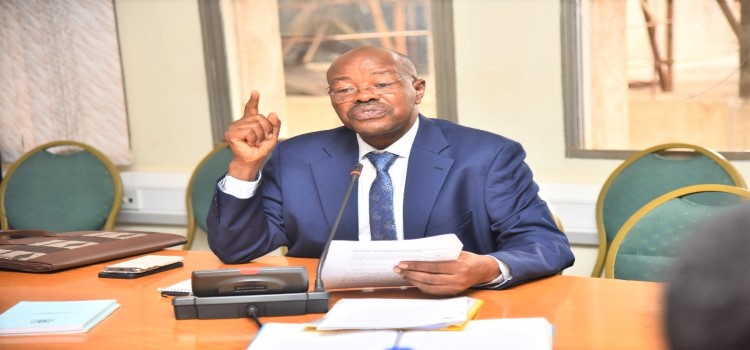The Minister of State for Finance, Planning and Economic Development Amos Lugoloobi has said that despite the hardships the economy has been going through, over 1422,857 jobs have been created in a single financial year.
He explained that in the first two years of the National Resistance Movement Manifesto Implementation, the government has been managing the economy in a challenging environment occasioned by several economic shocks such as; the Covid-19 pandemic, high inflation, fiscal constraints, Ebola, drought and the impact of Russia-Ukraine conflict, among others.
“These have led to rising interest rates, imported inflation, capital outflows from developing markets to developed markets such as North America and Europe, slower than the projected economic growth, and lower export demand. These notwithstanding, our economy has remained resilient and is on a recovery path,” he said.
The Ntenjeru North lawmaker while speaking during the NRM manifesto week on Friday at the office of the Prime Minister revealed that amidst challenges in the soon ending Financial Year, the economy has grown by 4.6 per cent, an improvement from 3.5 per cent registered in the previous year.
He added that over the first quarter of the same financial year, the economy grew by 7.5 per cent compared to 2.7 per cent in the same quarter of FY 2021/2022, mainly driven by increased value addition in both the industry and services sectors which grew at 12.7 per cent and 9 per cent respectively.
Lugoloobi noted that the percentage growth of the economy has helped much in the generation of formal jobs. And according to reports from Pay As You Earn (PAYE) register, there was an increase of 3.03 per cent from 1,380,972 employees in 2020/21 to 1,422,857 employees in 2021/22.
“The highest number of PAYE employees were registered in the Public Administration Sector (456,782), followed by the Manufacturing Sector (145,448), Wholesale and Retail Trade (97,261). Formal jobs in the Agricultural Sector also registered an increase from 51,384 employees in 2020/21 to 57,731 employees in 2021/22,” he said.
According to Lugoloobi, the Private Sector contributed about 83 per cent of the total formal sector jobs with a high concentration in agriculture and fishing, (69.4 per cent), manufacturing (5.6 per cent), trade and repairs (8.9 per cent), hotels and restaurants (2.0 per cent), transport and communication (2.3 per cent), construction (2.0 per cent) as well as education at 3.0 per cent.
Other critical sectors where recorded employment opportunities exist include mining and quarrying, utilities, posts and telecommunications, financial intermediation, insurance, business services, health and social works, and community and personal services.
He also added that in the same year, Uganda has exported merchandise worth US$ 674.54 million in March 2023 which represented a 93.0 per cent increase when compared to US$ 349.44 million exported during February 2023. “This increase was mainly on account of higher export earnings from mineral products, tobacco, maize, and cotton.”
On the issue of debt burden, The minister said that in March 2023, Uganda’s trade deficit with the rest of the world narrowed to US$ 241.93 million, from US$ 297.66 million registered in February 2023. This was on account of an increase in export earnings which more than offset the increase in the import bill during the month. In the EAC, Uganda traded at a surplus of US$ 15.9 million.
Do you have a story in your community or an opinion to share with us: Email us at editorial@watchdoguganda.com









